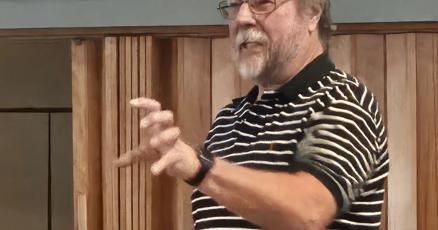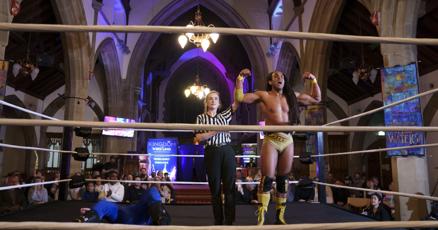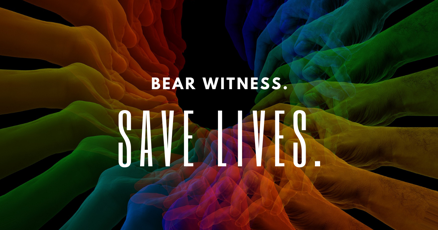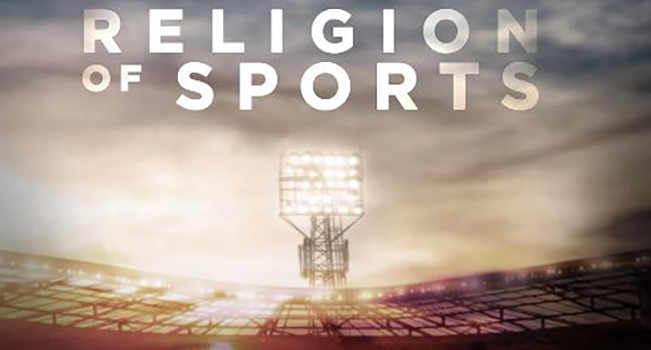Faith, Ink, and Lone Star Narratives: How Journalism Unveils Texas' Religious Tapestry
Religion
2025-03-25 21:31:15Content

Beyond the Bible Belt: Unveiling Texas' Religious Tapestry
Texas defies simple religious stereotypes, revealing a vibrant and complex spiritual landscape that goes far beyond its traditional evangelical reputation. While often dubbed the "buckle of the Bible Belt," the state is actually a remarkable religious kaleidoscope that reflects remarkable diversity and cultural richness.
From the sprawling evangelical communities that have long defined the state's religious character to the growing populations of Muslims, Hindus, and other faith traditions, Texas represents a dynamic intersection of spiritual beliefs. The state boasts the largest number of evangelical Protestants in the United States, yet simultaneously hosts one of the most significant Muslim populations and the second-largest Hindu community in the country.
This religious mosaic tells a nuanced story of cultural interaction, migration, and spiritual evolution that challenges simplistic narratives about Texas' religious identity. Each community contributes to a rich, multifaceted spiritual landscape that continues to transform and surprise, making Texas a unique microcosm of religious pluralism in America.
Unveiling Texas: A Spiritual Tapestry Beyond the Bible Belt
In the heart of the American Southwest, Texas stands as a remarkable testament to religious diversity, challenging simplistic stereotypes and revealing a complex spiritual landscape that defies conventional understanding. Far more than a monolithic religious environment, the Lone Star State represents a vibrant mosaic of faith traditions, cultural intersections, and spiritual expressions that tell a nuanced story of human belief and coexistence.Exploring the Multifaceted Religious Landscape of America's Most Misunderstood State
The Evangelical Heartland: More Than Meets the Eye
Texas has long been recognized as a stronghold of evangelical Christianity, with megachurches dotting urban landscapes and rural communities alike. However, beneath this seemingly uniform religious surface lies a profound complexity. Evangelical communities in Texas are not monolithic but represent diverse theological interpretations, generational shifts, and evolving social perspectives. From traditional conservative congregations to more progressive faith communities, the evangelical landscape reflects ongoing dialogues about identity, social justice, and spiritual transformation. The demographic composition of these religious communities reveals intricate patterns of migration, cultural exchange, and theological adaptation. Young evangelical leaders are increasingly engaging with social issues, challenging traditional narratives and reimagining the role of faith in public discourse.Religious Pluralism: A Microcosm of Global Spirituality
Contrary to popular perception, Texas hosts one of the most diverse religious ecosystems in the United States. Muslim communities have established robust cultural and religious infrastructures in major metropolitan areas like Houston and Dallas. These communities represent not just immigrant populations but also indigenous American Muslims, creating a rich tapestry of Islamic practice and cultural integration. Similarly, the state's Hindu population has transformed suburban landscapes, establishing temples that serve not just as places of worship but as cultural centers. These religious spaces become platforms for preserving cultural heritage, facilitating intergenerational dialogue, and challenging mainstream narratives about religious identity.Interfaith Dynamics and Cultural Resilience
The religious landscape of Texas is characterized by remarkable instances of interfaith dialogue and mutual understanding. Educational institutions, community organizations, and grassroots movements have been instrumental in fostering environments of respect and collaborative engagement across different faith traditions. Religious leaders and community activists are increasingly working together to address shared challenges, from social inequity to environmental concerns. This collaborative approach demonstrates that religious diversity can be a source of strength rather than division, challenging simplistic narratives of religious conflict.Emerging Spiritual Trends and Future Trajectories
Technological advancements and global interconnectedness are reshaping religious experiences in Texas. Digital platforms have enabled new forms of spiritual community, transcending traditional geographical and institutional boundaries. Young generations are exploring spirituality through more personalized, fluid frameworks that blend traditional religious practices with contemporary philosophical perspectives. The future of religious practice in Texas appears increasingly dynamic, with growing emphasis on individual spiritual journeys, social consciousness, and inclusive theological interpretations. This evolution suggests a profound reimagining of religious identity that goes beyond institutional frameworks.Economic and Social Implications of Religious Diversity
Religious diversity in Texas is not merely a cultural phenomenon but a significant economic and social driver. Diverse religious communities contribute to economic innovation, cultural creativity, and social resilience. Immigrant religious communities, in particular, have played crucial roles in entrepreneurship, community development, and cultural enrichment. The intersectionality of religious identity with other social dimensions—race, class, gender—provides complex narratives that challenge simplistic understandings of spirituality and social belonging.RELATED NEWS
Religion

Faith on Trial: Court Dismisses Incompetence Claim Rooted in Religious Conviction
2025-04-08 21:05:00
Religion

Spiritual Conditioning: How Faith Prepares You for Life's Biggest Challenges
2025-03-15 05:00:00






